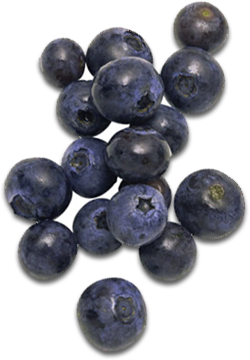no items to display
Healthy Vision: Carrots Really Are Good for Your Eyes
So what do you think…was that dress white and gold or blue and black?
Personally, I thought it was white and gold, but the whole phenomena points to what an important place in our lives color and vision hold, and what a complicated one too! In the case of the dress, it is our brains’ attempts to control for background light that causes people to come to such different conclusions.
It turns out this Internet diversion was a timely one. March is Save Your Vision Month. Other than regular eye exams, what’s one of the best things you can do for healthy vision? Hint: Your mother told you when you were a kid. Eat your carrots!
I always thought this was a myth perpetuated by Bugs Bunny until I became a natural health writer. Now I know that not only is it true that carrots support healthy vision, but why: They contain a lot of beta-carotene, a phytonutrient that the body uses to make vitamin A. Vitamin A, in turn, helps the eyes convert light into signals the brain needs to see, particularly in low light. In fact, a 2005 human study found that eating 4.5 ounces of cooked carrots a day improved night vision.[1] Carrots have other health benefits beyond healthy vision as well.
A one-cup serving of orange carrots provides:
· A whopping 428% of the daily value (DV) for vitamin A (as its precursor beta-carotene), necessary for healthy vision, immune strength, and the integrity of skin and mucous membranes.
· 21% of the DV for Vitamin K, which the body needs for healthy blood coagulation and the metabolism of calcium.
· 14% of the DV for fiber, which is necessary for normal digestion and elimination and helps reduce the risk of heart disease.
· And only 52 calories!
While the classic carrot is orange, carrots actually come in many colors. You may see white, purple, or yellow carrots at your farmers’ market, or you can grow these unusual varieties yourself from seed. Yellow carrots have an added vision benefit: the phyto-nutrient lutein.[2] Numerous studies indicate that lutein and another phyto-nutrient, zeaxanthin, may help preserve the macula of the eye, thus supporting healthy vision into old age.[3] Kale, spinach, broccoli, oranges, papayas, and tomatoes also contain lutein and zeaxanthin.[4]
Carrots are tasty raw or cooked. Consider these ways to incorporate more carrots into your diet:
· Carrot sticks make a wonderful addition to kids’ lunchboxes and are great with dips. Try hummus or a mixture of cream cheese and yogurt seasoned with your favorite herbs and spices.
· Chopped carrots can be added to most homemade soups and stews.
· Whole carrots are also delicious roasted with olive oil, salt, and rosemary.
· Nothing beats a cup of carrot soup on a chilly March evening. This soup, made from carrots and cashews, is one of my favorites.
· Carrots are also very good braised, or cooked in a small amount of flavorful liquid. Try this recipe for braised carrots with fennel and orange zest.
· And of course, carrots are wonderful in salads. This simple salad consists of grated carrots and raisins in vinaigrette.
New carrots will be available in farmers’ markets in the spring when the farmers start to thin their crops. I’m looking forward to bringing home bunches of those slender roots, and this time, I’ll look for some yellow ones.
Carrots are just one of the 20 ingredients in Juice Plus+ Orchard and Garden Blends, along with a bounty of other healthy vegetables, fruits, and grains. And now you have more reasons to add them to your diet.
What’s your favorite way to eat carrots?
References
[1] Maron DF. Fact or fiction? Carrots improve your vision. Scientific American. 2014 Jun 23. http://www.scientificamerican.com/article/fact-or-fiction-carrots-improve-your-vision/
[2] Molldrem KL, et al. Lutein and beta-carotene from lutein-containing yellow carrots are bioavailable in humans. Am J Clin Nutr. 2004 Jul;80(1):131-6.
[3] Daniels S. Study unlocks door to xanthophyll’s eye health. Nutraingredients. 2008 Jul 18. http://www.nutraingredients.com/content/view/print/117747
[4] Torrey G. Lutein may decrease your risk of macular degeneration. American Macular Degeneration Foundation. https://www.macular.org/lutein






